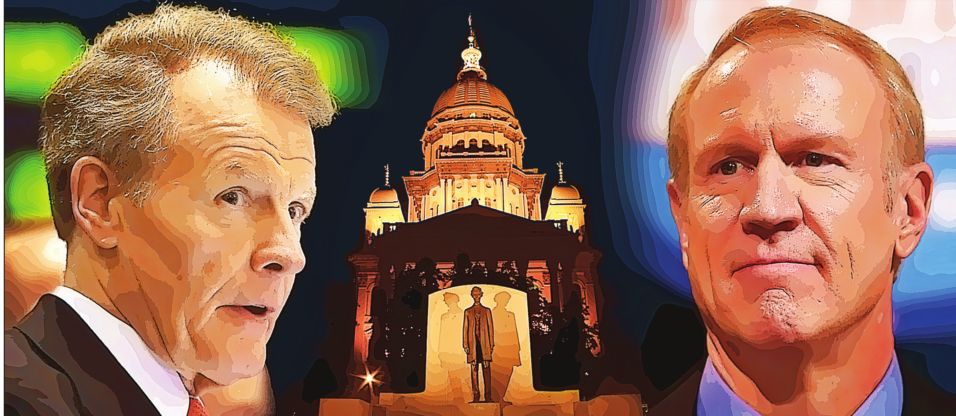
 LETTERS
LETTERS
We welcome letters. Please include your full name, address and telephone number. We edit all letters. Send them to [email protected].
A TIP FROM ABE I have read several articles in various newspapers on how to resolve the Illinois budget impasse. At this point, a reasonable and prudent person would consider it irresolvable.
This reminds me of one of my favorite Abraham Lincoln stories. When Lincoln was a young lawyer, two farmers who had been lifelong friends came to him, both asking him to represent them in a proposed lawsuit over the installation of a fence between their properties. Lincoln listened to them carefully and said he would think it over.
At a later date, he called them together, put them in a back room with a jug of whiskey and told them he was going to lock the door and keep them there until they resolved their differences. He felt their friendship was too valuable to throw away over a petty issue such as this.
According to legend or history, they worked out their own resolution.
I should like to propose by mutual agreement, Rauner and Madigan be placed in a room at one of the local hostelries with beds, a large table and other necessary accoutrements and they be kept there until everything is worked out.
No TV, no newspapers, no outside contact unless it is a personal emergency. I will provide the whiskey, beer, wine or whatever legally necessary to provide lubrication for resolution.
I would also propose Andy Shaw of the Better Government Association be put in the room as a referree, bartender, contactor of outside experts for information or technical analysis, recording secretary and boxing corner cutman if things get out of hand.
My fear is the resolution will become pyrrhic in nature. King Pyrrhus of Epirus defeated the Romans at Asculum in 279 B.C., but had his army destroyed as a consequence.
Do we wish for “Illinois Outcome” to enter the lexicon, synonymous with Pyrrhic victory as history records the way our impasse was resolved? Bill Klein Springfield
STUDENTS VALUE ISM I did an internship through Illinois College at the Illinois State Museum during the summer of 2013. I worked in the Decorative Arts section with Angela Goebel- Bain and Irene Boyer.
My internship through the ISM helped me gain knowledge that I was able to share with the historical site I currently volunteer at, Woodlawn Farm Underground Railroad site in Jacksonville. It also helped me gain my current job with the Illinois Supreme Court Historic Preservation Commission as a research associate.
The ISM isn’t just a fun place for kids to go or a place to store a vast amount of history and knowledge; it’s a wonderful stepping stone for students to learn from highly skilled professionals, who, I might add, are a lot of fun to work with. While I worked in Decorative Arts, I helped preserve quilts, dolls and a wide variety of items from different centuries. This was my first internship and it helped me achieve my goal of gaining a future job.
It seems odd to me that anyone would ever want to close such a gem, especially since it brings in more money to the area than it requires for salaries. If the current state agenda is job creation, like it always is, I must speak up and put in my two cents and say, “Look at me, I got a job, and the ISM helped me get it!” To all who are reading this and have the power to save the ISM, please save it. I couldn’t imagine where I would be if they hadn’t accepted me as their intern. Ben Belzer Jacksonville
CLIMATE CHANGE President Obama makes a lot of stupid statements, but recently he made one of the dumbest statements I have ever heard. He actually said this is the first generation that has experienced climate change and it is the last generation that can do anything about it.
Each generation is 20 years.
In the early 20th century the U.S. was cooling. Then in the 1920s and 1930s the earth was warming. Then, from 1945 to 1976, the earth was cooling. In the late 1970s it started warming again until 1998, and according to satellite data there has been no warming since then. There have been approximately six generations since 1900, and the climate has changed at least five times.
I would love to hear someone explain how with rising CO2 for 120 years that the trend has changed five times, and that there is any correlation at all between temperatures, climate and CO2. Jack Hellner Springfield